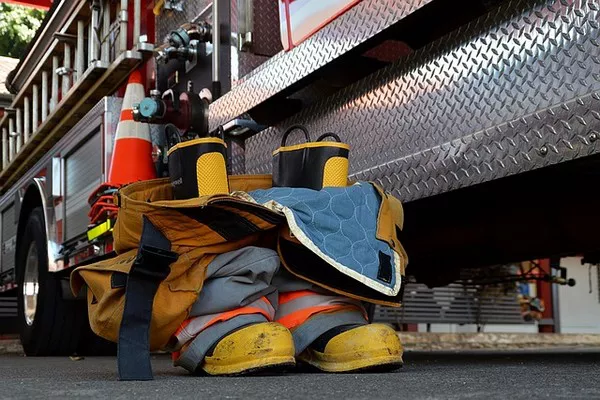Fire extinguishers are essential safety devices that play a crucial role in controlling and extinguishing fires, protecting lives, and safeguarding property. Among the various types of fire extinguishers available, water fire extinguishers hold a prominent place due to their effectiveness and versatility in combating certain types of fires. In this article, we will explore what water fire extinguishers are and their ideal applications, emphasizing safe handling practices to ensure efficient fire suppression.
What is a Water Fire Extinguisher?
A water fire extinguisher is a simple yet effective fire suppression device designed to extinguish Class A fires, which involve common combustible materials such as wood, paper, cloth, rubber, and plastics. These extinguishers are generally filled with water and may contain additives or chemicals to enhance their performance and increase their ability to penetrate and smother the fire.
Key Characteristics of Water Fire Extinguishers:
1.Class A Fires: Water fire extinguishers are suitable for Class A fires only, where solid materials are involved. They are not designed to combat fires caused by flammable liquids, gases, or electrical equipment.
2. Cooling Effect: The primary mode of action for water extinguishers is cooling. When applied to a fire, the water absorbs heat, reducing the temperature of the burning material and suppressing the flames.
3. Limited Range: Water fire extinguishers have a limited range compared to other types of extinguishers. They are typically effective within a range of about 20 to 30 feet.
4. Safe and Environmentally Friendly: Water is a non-toxic and environmentally friendly agent, making water fire extinguishers a safe choice for use in areas with sensitive materials or where contamination risks are a concern.
Ideal Applications of Water Fire Extinguishers:
Water fire extinguishers are best suited for specific environments and situations where Class A fires are most likely to occur. Here are some common applications where water fire extinguishers are highly effective:
1. Residential Areas:
Water fire extinguishers are well-suited for residential properties, including homes, apartments, and condominiums. They provide an efficient and safe means of tackling fires involving common household materials such as wood, paper, and fabrics.
2. Office Spaces:
Offices often contain a significant amount of paper, cardboard, and other combustible materials. Water fire extinguishers can effectively address fires in these environments without causing significant damage to electronic equipment or other sensitive materials.
3. Educational Institutions:
Schools, colleges, and universities can benefit from the use of water fire extinguishers, especially in classrooms, libraries, and common areas where Class A fire risks are more prevalent.
4. Warehouses and Storage Facilities:
Warehouses and storage areas often store large quantities of combustible materials, making them susceptible to Class A fires. Water fire extinguishers can serve as an effective initial response to such fires until professional firefighters arrive.
5. Industrial Settings:
Certain industrial facilities, such as manufacturing plants, may have specific areas where Class A fire risks are higher. Water fire extinguishers can be strategically placed in these locations to provide quick and effective fire control.
Safe Handling and Usage:
While water fire extinguishers are valuable tools for suppressing Class A fires, their safe handling and proper usage are essential to ensure effective fire control and minimize risks. Here are some important guidelines for the safe handling of water fire extinguishers:
1. Know the Fire Types:
Understand the different classes of fires and the types of extinguishers suitable for each class. Water fire extinguishers are specifically designed for Class A fires and should never be used on flammable liquids, gases, or electrical fires.
2. Maintain Proper Distance:
When operating a water fire extinguisher, maintain a safe distance from the fire. Get as close as possible to ensure effective suppression without endangering yourself.
3. Aim at the Base of the Fire:
Direct the water stream at the base of the flames, as this is the most effective way to extinguish the fire. Avoid spraying the water directly into the flames, as it may scatter burning materials and worsen the situation.
4. Watch for Re-ignition:
Even after using a water fire extinguisher, keep a close eye on the area to ensure that the fire does not reignite. If the fire reignites, repeat the extinguishing process or seek professional assistance.
5. Observe Expiry Dates:
Regularly inspect the water fire extinguisher to ensure that it is in good working condition. Check the pressure gauge and verify the expiry date to ensure that it is within its operational lifespan. Replace or refill the extinguisher if it has expired or if it has been used.
6. Maintain Proper Training:
Ensure that individuals who may need to use water fire extinguishers, such as employees or family members, receive proper training in their usage and are familiar with fire safety protocols.
Conclusion
Water fire extinguishers are invaluable tools for controlling Class A fires in various settings, including residential properties, offices, schools, and warehouses. Their cooling effect and environmentally friendly nature make them a safe and effective choice for initial fire suppression. However, it is essential to use water fire extinguishers correctly, knowing their limitations and following safety guidelines to ensure optimal results while minimizing risks. By understanding the ideal applications and safe handling practices of water fire extinguishers, individuals and organizations can take proactive steps to enhance fire safety and protect lives and property.

